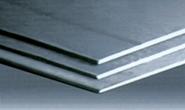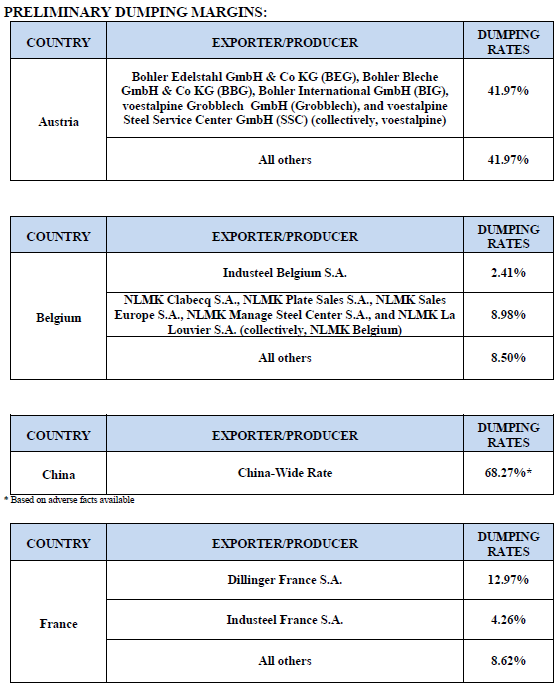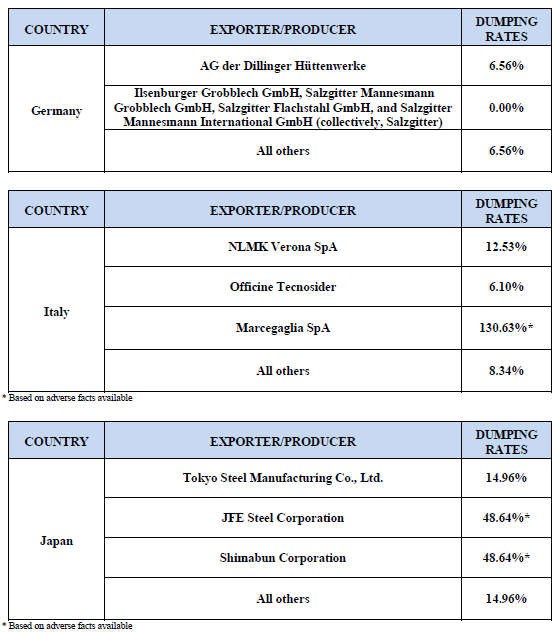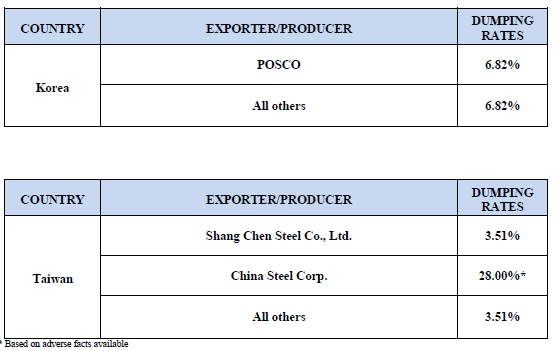Government/Policy

November 8, 2016
DOC Announces Affirmative Preliminary AD Determinations on Imports of CTL Plate
Written by Sandy Williams
The Department of Commerce announced on Monday its affirmative preliminary determinations in the antidumping investigations of imports of certain carbon and alloy steel cut-to-length plate (CTL plate) from Austria, Belgium, China, France, Germany, Italy, Japan, Korea, and Taiwan.
CTL plate is a flat-rolled carbon and alloy steel product that is 4.75 mm or more in thickness and that has a defined length (i.e., it is not in coils). CTL plate is used in a wide variety of applications including welded load-bearing and structural applications such as in buildings or bridgework; transmission towers and light poles; agricultural, construction, and mining equipment; machine parts and tooling; heaving transportation equipment like ships, rail cars, tankers and barges; and large diameter line pipe.
Critical circumstances were alleged with respect to imports of CTL plate from Austria, Belgium, Italy, Korea, and Taiwan. In preliminary determinations on September 7, 2016, Commerce preliminarily found that critical circumstances exist with respect to certain exporters from Austria, Belgium, Taiwan and Italy. Consequently, Customs and Border Protection (CBP) will be instructed to impose provisional measures retroactively on entries of CTL plate from Austria, Belgium, Italy, and Taiwan, effective 90 days prior to publication of the preliminary determinations in the Federal Register, for the affected exporters.
Dumping margins were assigned based on adverse facts available due to failure to cooperate for Marcegaglia SpA in Italy, JFE Steel Corporation and Shimabun Corporation in Japan, and for China Steel Corporation in Taiwan. In the China investigation, Commerce found that sole mandatory respondent, Jiangyin Xingcheng Special Steel Works Co., Ltd., is not eligible for a separate rate from the China-wide entity which received a preliminary dumping margin of 68.27 percent for failure to cooperate.
Next Steps
Commerce will make its final determinations for Austria, Belgium, France, Germany, Italy, Japan, Korea, and Taiwan on or about March 29, 2017 and, separately for China, on January 18, 2017. The International Trade Commission (ITC) will release its final determinations of injury in the AD case for the group of eight countries on May 15, 2017, and for China on March 5, 2017. If determinations by both Commerce and the ITC are affirmative, orders will be issued on March 13, 2016 for China, and on May 22, 2016 for the others.










